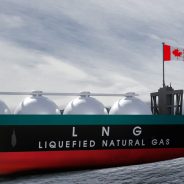Dragun’s Environmental Site Assessment and Remediation Webinars Available Here:
Canadian Natural Resources: Liquefied Natural Gas
Politicians and environmental groups have recently been weighing in on the topic of Liquefied Natural Gas (LNG) development in Canada. Will we see a boost in LNG production, and what are the environmental benefits of LNG? In a March 25, 2025, article in the National Post, they state, “After years of acrimony over the obvious, the Liberals and the NDP are finally embracing natural resources as a key prong of Canada’s economic future. BC Premier David Eby now unabashedly lauds LNG as crucial, while Liberal leadership contender Chrystia...
read moreEnvironmental Liability and Enforcement
Environmental liability is a growing concern for businesses of all sizes across Canada. Recently, there has been a focus on the liability associated with per- and polyfluoroalkyl substances (PFAS) as well as the liability related to sustainability claims, the plastics registry, and managing excess soils. Concerning PFAS, according to the Canadian Bar Association, “PFAS lawsuits have been proliferating in Canada in recent years. Private firms are pursuing class actions in Ontario and British Columbia against major chemical manufacturers on...
read moreGlobal Politics and Green Initiatives
The political and policy changes in the United States (US) are having a ripple effect as they relate to global climate policies and green initiatives such as Environmental Social and Governance (ESG). How or will these changing policies affect Canada? From Environment and Energy Leader: “The 2024 U.S. election has introduced new uncertainties into global markets, with investors closely watching potential shifts in sustainability policies, trade relations, and climate regulations. While some feared that Donald Trump’s return could set back...
read moreProposed Risk Management Approach for PFAS
As we reported in our July 25, 2024, blog, Environment and Climate Change Canada (ECCC) issued the “Updated draft state of per- and polyfluoroalkyl substances (PFAS) report.” In March 2025, ECCC issued a notice: “Government of Canada publishes State of Per- and Polyfluoroalkyl Substances (PFAS) Report and proposed Risk Management Approach.” The notice outlines the proposed approach to address PFAS. PFAS Background PFAS are a class of chemicals used worldwide for a variety of applications since the 1940s. Thousands of PFAS have been...
read moreGrowing Federal Regulations and Recent Enforcement Developments
The number of federal environmental regulations continues to grow, and, in some cases, these regulations have substantial penalties for non-compliance. Some of these recent regulations include the deadline that recently passed for Mandatory PFAS (per- and polyfluoroalkyl substances) Reporting, the Plastics Registry Reporting that commences later in 2025, and the amendments to the Competition Act that will focus on environmental claims made in marketing and promotional material. With this as a backdrop, we provide an update on recent...
read moreGuidance: Environmental Claims and the Competition Act
In our July 15, 2024, blog, we discussed Bill C-59 and the substantial changes to Greenwashing under the Competition Act. On December 23, 2024, the Competition Bureau released draft guidelines: “Environmental Claims and the Competition Act.” Comments close on February 28, 2025. Competition Act: Six Principles As stated in the draft guidance, while the Bureau does not tell businesses what they can or cannot say, “The Bureau has developed six high-level principles that together can help your business stay onside of the law when it comes to...
read moreChanges to Ontario’s Records of Site Condition May Help Redevelopment
Developing property in Ontario can, at times, be time-consuming and expensive, especially if the project involves filing a Record of Site Condition (RSC). There may be some relief as The Ontario Ministry of the Environment, Conservation, and Parks (MECP) is proposing amendments to Ontario Regulation 153/04. These proposed changes will prohibit the submission of an RSC for filing in specified circumstances and expand an exemption from RSC filing requirements for changes in the use of buildings from commercial or community use to mixed-use,...
read moreSummary of Environmental Regulatory Developments in 2024
In 2024, we noted several environmental regulatory developments. In our final blog for the year, we are providing some reminders regarding regulatory changes and some quickly approaching reporting requirements. We begin with the news of a new Federal Environmental Agency. New Standalone Water Agency The Canada Water Agency (Agency) was on an interim basis within the Environment and Climate Change Canada. They are now a standalone agency, headquartered in Winnipeg with five regional offices across Canada. Once fully staffed, the Agency will...
read morePlastics Registry Reporting Begins in 2025
Environment Minister Steven Guilbeault said he was disappointed that the recent meeting in Busan, Republic of Korea, which included 170 nations, did not reach a conclusion regarding a global treaty to address plastic pollution. Global talks will resume in 2025. Global efforts notwithstanding, Canada continues to move forward on the federal and provincial levels to address plastics in the environment. Provinces and Territories (with the exception of Prince Edward Island, Newfoundland and Labrador, Nunavut, and Northwest Territories)...
read moreAdditional GHG Regulations for the Oil and Gas Sector
The federal government continues to develop additional regulatory framework surrounding sustainability and climate-related issues. The most recent focus is on the Oil and Gas sector. We also cover a new voluntary sustainability program and new commitments made by the Canadian Government at the Conference of Parties (COP) 29. Oil and Gas Sector GHG Cap The Government of Canada recently (Canada Gazette, November 9, 2024) released the proposed “Oil and Gas Sector Greenhouse Gas (GHG) Emissions Cap Regulations.” The proposed regulations set...
read more










